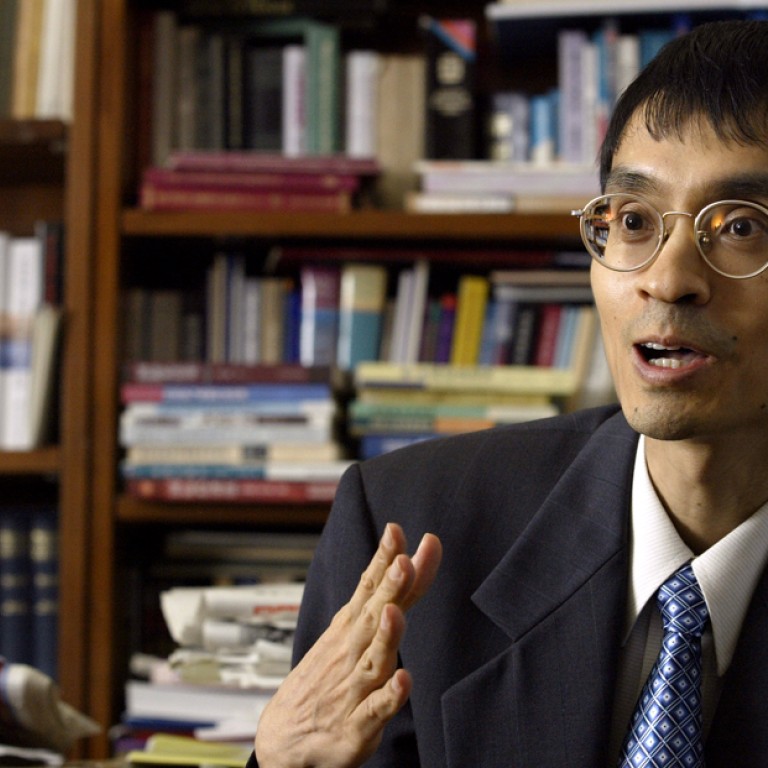
Let Beijing reject winner of 2017 election, says Basic Law expert
Plan pitched to allow central government to pick runner-up over winner as city’s leader
A prominent Basic Law expert has suggested allowing Beijing to appoint the 2017 chief executive candidate with the second highest number of ballots if it considers the winner to be unfit.
Albert Chen Hung-yee, a member of the Basic Law Committee, said the number of candidates should be limited to five.
Chen stressed he was making the suggestions in a personal capacity, and that he had not consulted any of his colleagues on the committee or any Beijing or Hong Kong officials.
The Hong Kong government’s first consultation document on the upcoming electoral reform is likely to be announced by Chief Secretary Carrie Lam Cheng Yuet-ngor at the Legislative Council meeting on December 11, according to an informed source.
Chen laid out his idea in an article in yesterday.
Under his proposal, contenders will be chosen by a nominating committee, which resembles the existing 1,200-strong Election Committee.
The electoral base of the nominating committee would be expanded from that of the present Election Committee, with company directors and labour union members being allowed to vote in the respective sectors and all popularly elected district councillors automatically given seats on the committee.
A candidate would require the support of one-eighth of nominating committee members to stand in the election. If more than five people secured enough support, the committee would hold an internal ballot, from which five candidates would emerge.
The general public would then vote by ranking the choices one to five, an idea Chen said he had borrowed from Civic Party legislator Ronny Tong Ka-wah.
Tong said Chen's proposal was very different from his own plan, under which the nominating committee's electoral base would be further expanded and citizens would be able to choose from as many as 10 candidates.
Democratic Party Vice-Chairman Richard Tsoi Yiu-cheong said Chen's proposal offered Beijing too much power.
"The central government can simply refuse to appoint the winner and pick the runner-up without even holding another round of elections. That essentially means Beijing can do anything it wants," Tsoi said.
Democratic Party members have yet to put forward their own proposal, but have shown support for a three-pronged approach to nomination. A candidate could be nominated by a political party, about two per cent of general voters or a certain percentage of nominating committee members.
Chen maintained that capping the number of candidates at five was "lawful and legitimate under Article 45 of the Basic Law".
Elsie Leung Oi-sie, vice-chairwoman of the Basic Law Committee, said Chen's proposal risked violating the principle of balanced participation.
"By adding all district councillors, the committee may overly tilt towards the political sector," she told TVB.
